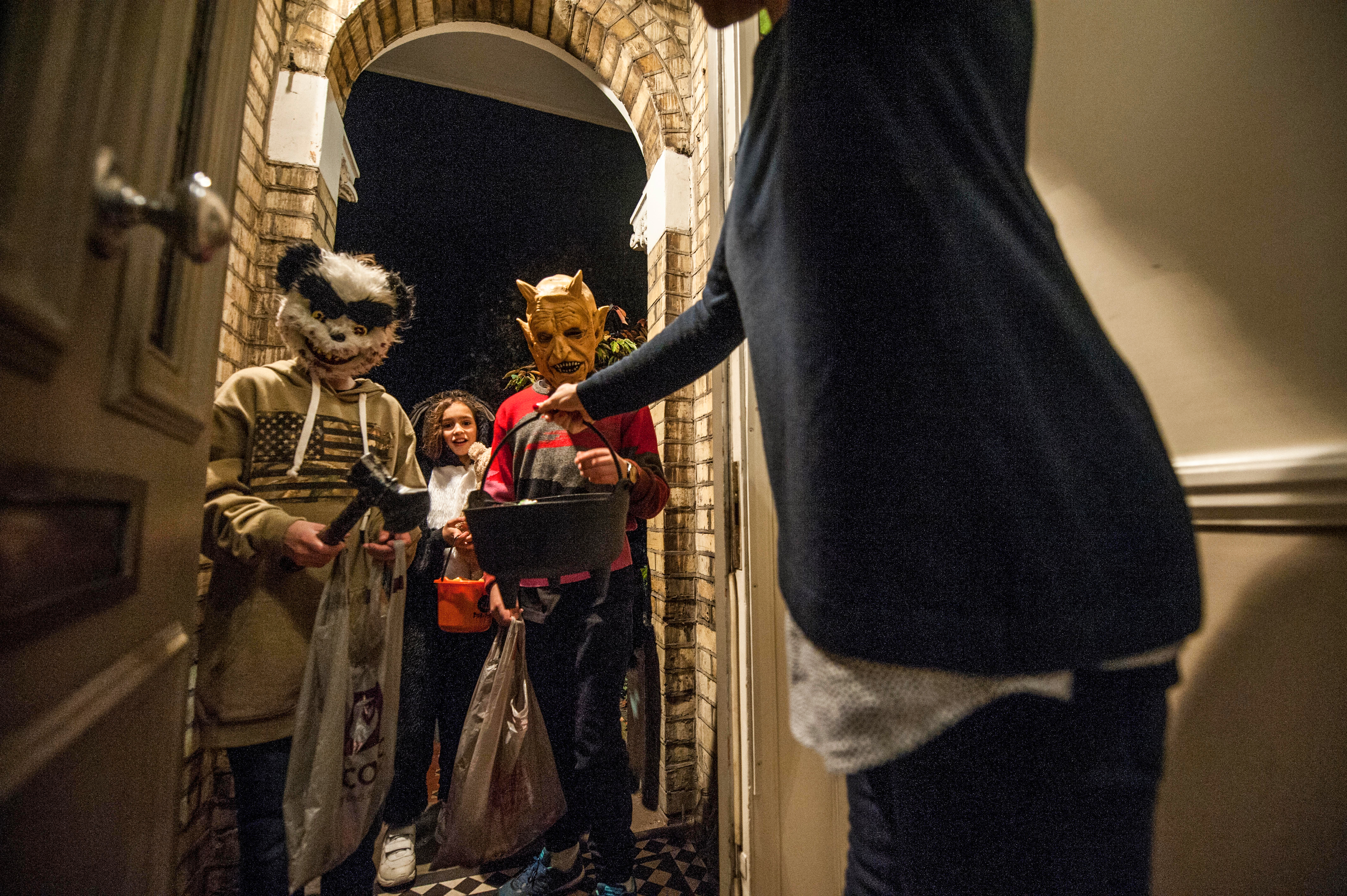There shouldn't be an age limit for trick-or-treating
My tween is just as entitled to candy as your toddler


A free daily email with the biggest news stories of the day – and the best features from TheWeek.com
You are now subscribed
Your newsletter sign-up was successful
My 12-year-old daughter has asked me the same question approximately 23 times this month: "Did you order my Halloween costume yet?" I haven't. But I will.
A growing number of Americans would say that a kid as old as mine has no business dressing up and asking the neighbors to toss them a mini Snickers. Last year, a Today survey asked, "When should kids stop trick-or-treating?" The results tied at ages 12 and 13. Three quarters of Americans say that by age 17, kids are too old to take part in this time-honored tradition — costume or no costume.
My daughter didn't ask me whether or not she could trick-or-treat this year. It never occurred to her that she couldn't. She has no idea there are thousands of people out there who have decided that hitting puberty means it's time to hand in your fun card. Nor does she realize how lucky she is to live in our small New York town. After all, multiple municipalities have drafted laws that put age limits on trick-or-treating, telling tweens and teens they're no longer allowed to take part in the festivities.
The Week
Escape your echo chamber. Get the facts behind the news, plus analysis from multiple perspectives.

Sign up for The Week's Free Newsletters
From our morning news briefing to a weekly Good News Newsletter, get the best of The Week delivered directly to your inbox.
From our morning news briefing to a weekly Good News Newsletter, get the best of The Week delivered directly to your inbox.
"When I was a kid my father said to me, 'You're too damn big to be going trick-or-treating. You're done,'" the mayor of Belleville, Illinois, told The Associated Press back in 2013. "When that doesn't happen, then that's reason for the city governments to intervene."
That's a unique perspective on the line between parental and municipal responsibility. But I wonder if the legislators who have stuck their noses into the Halloween happenings in their towns have stopped to consider a simple fact: No one is forcing their citizens to open their front doors on Halloween (or any other night).
Handing out Halloween candy has always been a choice. No one has to do it. There's no fun-sized snack police wandering around town, writing out tickets for those who ignore the fevered frenzy going on outside their door. If you're not a fan of sharing your chocolate (and hey, we all have those days), you can just as easily dim the lights and hunker down in a dark room with a laptop streaming an old TV show on Netflix. If you don't want to hand over your hard-earned mini treats to my not-so-mini kid, you're welcome to opt out of Halloween.
But if you flip on that porch light and throw open the front door, you've put out a virtual sign that says "Come on over, I'm the kind of person who wants to be a part of this village raising these kids."
A free daily email with the biggest news stories of the day – and the best features from TheWeek.com
That sign doesn't have an asterisk. There's no an addendum at the bottom that warns kids they must be young enough to name all the members of Paw Patrol and under 5 feet tall to ascend your porch steps.
If you participate in Halloween, you participate in it all. You don't get to pick and choose who deserves your candy — not based on age, grades earned in math class, or any other arbitrary method for determining which kids have a right to enjoy the vestiges of childhood.
According to stats from the Property Casualty Insurers Association of America, Halloween night sparks more vandalism claims than any other night of the year. This statistic is often used as an excuse by adults who say older kids should be cut off from trick-or-treating. But when we turn kids away from the positive experience of Halloween because we deem them too old to continue to experience childhood activities, can we really be angry at them for smashing pumpkins and tossing rolls of toilet paper at trees? For acting like … kids?
From a commonsense standpoint, letting older kids participate in Halloween gives them something positive to do. From a more emotional standpoint, it reminds them that they are part of a global village, where adults do nice things for them because childhood is valued, and they are too.
Jeanne Sager is a writer, editor, and photographer from upstate New York. She's strung words together for The New York Times, The Washington Post, The Atlantic, and more.
-
 The plan to wall off the ‘Doomsday’ glacier
The plan to wall off the ‘Doomsday’ glacierUnder the Radar Massive barrier could ‘slow the rate of ice loss’ from Thwaites Glacier, whose total collapse would have devastating consequences
-
 Trump’s fuel blockade puts Cuba in crisis mode
Trump’s fuel blockade puts Cuba in crisis modeIN THE SPOTLIGHT Plummeting tourism, scrambling airlines and rolling blackouts are pushing Cuban society to the brink
-
 ‘The mark’s significance is psychological, if that’
‘The mark’s significance is psychological, if that’Instant Opinion Opinion, comment and editorials of the day
